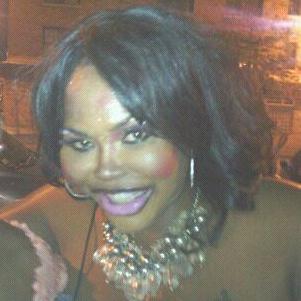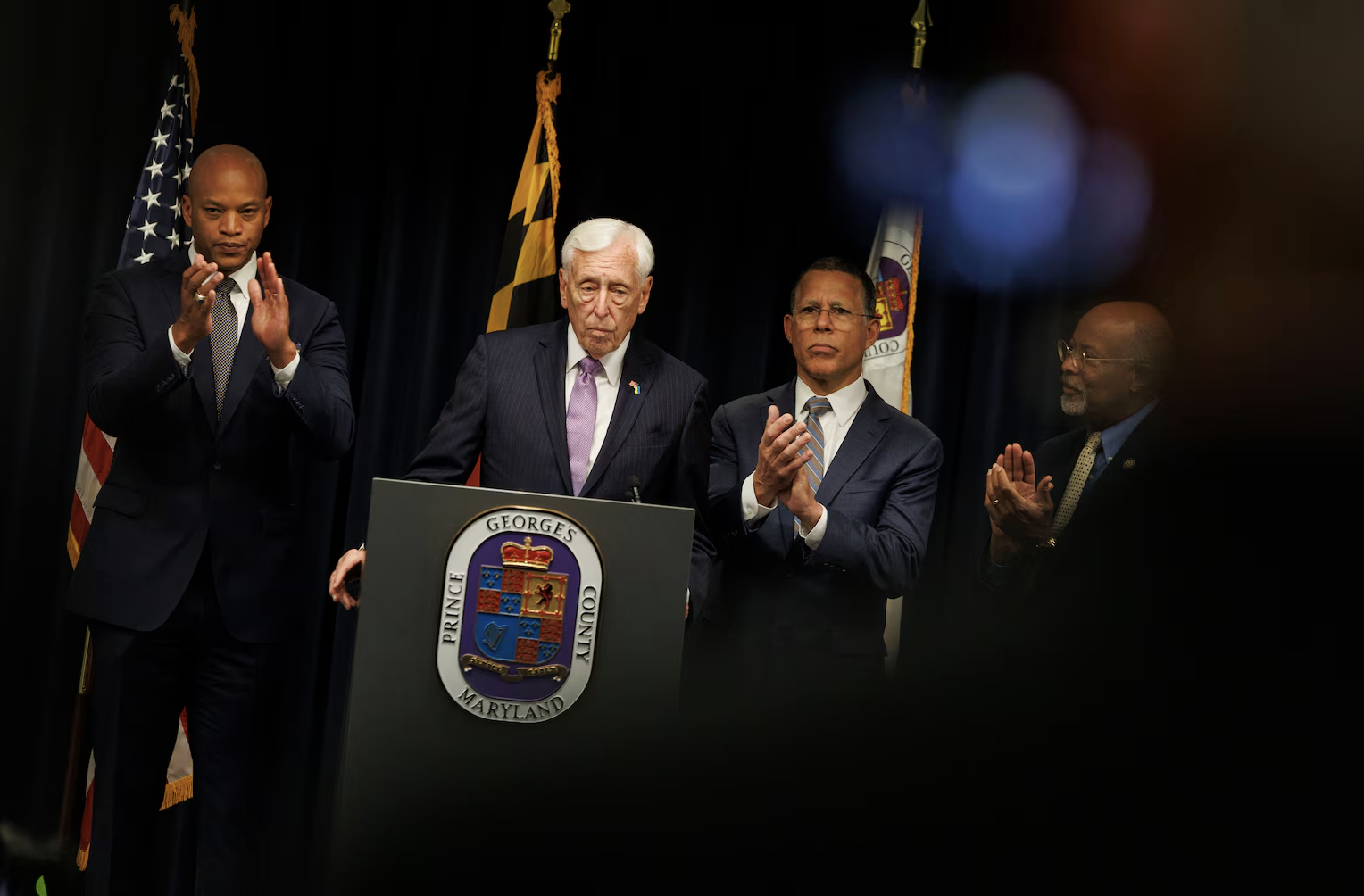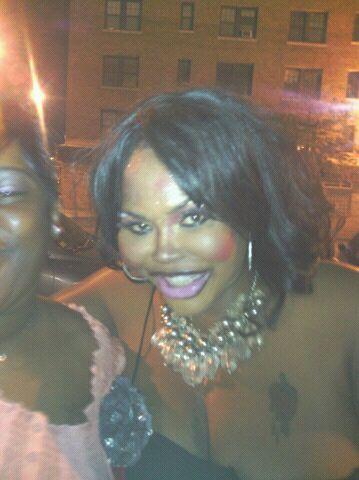Local
Transgender woman sues D.C. police, U.S. marshals
Claims authorities placed her with male detainees after 2009 arrest

A transgender D.C. woman alleges in a lawsuit against the Metropolitan Police Department and the U.S. Marshals Service that she was improperly placed with male prisoners after a 2009 arrest.
Patti Hammond Shaw of Southeast Washington said she turned herself in to officers at the Sixth District station on June 18, 2009, after she received a letter that stated there was a warrant for her arrest for filing a false police report. Shaw claims that she showed officers her identification that proved she was legally female, but they placed her in a cell in the men’s section. She further alleges that male prisoners “asked to see her vagina, breasts and buttocks.”
D.C. police subsequently remanded Shaw, who underwent sex reassignment surgery in 1999, to the custody of U.S. marshals. She said she insisted that she is a woman, but Shaw claims that they insisted she was a man and referred to her by her birth name Melvin. The lawsuit states that the male marshal who searched Shaw “groped her breasts, buttocks and between her legs repeatedly and excessively.” She further alleges that other marshals made crude comments about her breasts and gender.
The lawsuit claims that marshals placed Shaw in a holding cell with approximately 30 men who were going to traffic court. “Several of the men in the holding cell touched Ms. Shaw inappropriately, verbally harassed and propositioned her, threatened to punch her if she did not show her breasts to them, and shook their penises at her,” it reads.
Shaw also claims that she was forced to urinate in a cup in “full view of the men in the holding cell.” She further states that a male detainee to whom she was chained touched her “inappropriately several times” as they went into D.C. Superior Court. Shaw said that the marshals told the man to stop harassing her and instructed her to ignore him. She alleges that the male detainee continued to harass her and the marshals “did not take any further action.”
“Going through something like this was very, very, very hard for me being a transsexual woman,” Shaw told the Blade. “I kept telling them I was a woman and they said, ‘that’s what they all say.’ They didn’t believe that I had sex reassignment surgery. They didn’t believe me at all.”
Arrestees receive a Police Department Identification Number that is linked to their name and gender when they are taken into custody for the first time.
D.C. police in 2007 adopted a policy that states trans arrestees must remain in a holding cell by themselves. Personnel are required to remain cognizant of a detainee’s gender identity and expression, and immediately notify their commanding officer if their record indicates a different gender than the one that they present at the time of their arrest. The policy further states that MPD staff should pass this information along to the U.S. Marshals Service or other law enforcement agencies that may transport a prisoner.
Neither the MPD nor the U.S. Marshals Service responded to the Blade’s request for comment, but the lawsuit alleges that D.C. police failed to adhere to their own policy. It further accuses Steve Conboy, former U.S. marshal for the D.C. Superior Court, of “intentionally disregarding gender information about transgender detainees” that MPD employees relayed to members of the U.S. Marshals Service. The lawsuit also names Benjamin Kates, former acting U.S. marshal for the D.C. Superior Court, as a co-defendant.
U.S. District Judge Ellen S. Huvelle last November dismissed Shaw’s lawsuit on procedural grounds, but she said she could pursue them in U.S. District Court in spite of her belief that they would ultimately not proceed.
Shaw’s attorney, Jeffrey Light, told the Blade that his client’s incarceration with male inmates was based on where “her genitals used to be.”
“There’s absolutely no legitimate reason for that,” he said. “Individuals have different ideas about where they would be safest. Some people want to be in a cell by themselves, some people would prefer to be in the general population with people of the gender with which they identify. It makes sense when anybody is in custody in the criminal system where they feel safest is taken into account.”
Shaw is seeking unspecified monetary damages that a jury would ultimately determine if her case goes to trial.
Light said he has met with Michael Hughes, the gay current U.S. marshal for D.C. Superior Court, to discuss the concerns highlighted in Shaw’s lawsuit. He said Hughes’ office has solicited input from the D.C. Trans Coalition on how to improve the treatment of trans prisoners while in custody.
“This was a very positive step that we were invited to work on that,” said Light.
Virginia
Gay Va. State Sen. Ebbin resigns for role in Spanberger administration
Veteran lawmaker will step down in February

Alexandria Democrat Adam Ebbin, who has served as an openly gay member of the Virginia Legislature since 2004, announced on Jan. 7 that he is resigning from his seat in the State Senate to take a job in the administration of Gov.-Elect Abigail Spanberger.
Since 2012, Ebbin has been a member of the Virginia Senate for the 39th District representing parts of Alexandria, Arlington, and Fairfax counties. He served in the Virginia House of Delegates representing Alexandria from 2004 to 2012, becoming the state’s first out gay lawmaker.
His announcement says he submitted his resignation from his Senate position effective Feb. 18 to join the Spanberger administration as a senior adviser at the Virginia Cannabis Control Authority.
“I’m grateful to have the benefit of Senator Ebbin’s policy expertise continuing to serve the people of Virginia, and I look forward to working with him to prioritize public safety and public health,” Spanberger said in Ebbin’s announcement statement.
She was referring to the lead role Ebbin has played in the Virginia Legislature’s approval in 2020 of legislation decriminalizing marijuana and the subsequent approval in 2021of a bill legalizing recreational use and possession of marijuana for adults 21 years of age and older. But the Virginia Legislature has yet to pass legislation facilitating the retail sale of marijuana for recreational use and limits sales to purchases at licensed medical marijuana dispensaries.
“I share Governor-elect Spanberger’s goal that adults 21 and over who choose to use cannabis, and those who use it for medical treatment, have access to a well-tested, accurately labeled product, free from contamination,” Ebbin said in his statement. “2026 is the year we will move cannabis sales off the street corner and behind the age-verified counter,” he said.
Maryland
Steny Hoyer, the longest-serving House Democrat, to retire from Congress
Md. congressman served for years in party leadership

By ASSOCIATED PRESS and LISA MASCARO | Rep. Steny Hoyer of Maryland, the longest-serving Democrat in Congress and once a rival to become House speaker, will announce Thursday he is set to retire at the end of his term.
Hoyer, who served for years in party leadership and helped steer Democrats through some of their most significant legislative victories, is set to deliver a House floor speech about his decision, according to a person familiar with the situation and granted anonymity to discuss it.
“Tune in,” Hoyer said on social media. He confirmed his retirement plans in an interview with the Washington Post.
The rest of this article can be found on the Baltimore Banner’s website.
District of Columbia
Kennedy Center renaming triggers backlash
Artists who cancel shows threatened; calls for funding boycott grow

Efforts to rename the Kennedy Center to add President Trump’s name to the D.C. arts institution continue to spark backlash.
A new petition from Qommittee , a national network of drag artists and allies led by survivors of hate crimes, calls on Kennedy Center donors to suspend funding to the center until “artistic independence is restored, and to redirect support to banned or censored artists.”
“While Trump won’t back down, the donors who contribute nearly $100 million annually to the Kennedy Center can afford to take a stand,” the petition reads. “Money talks. When donors fund censorship, they don’t just harm one institution – they tell marginalized communities their stories don’t deserve to be told.”
The petition can be found here.
Meanwhile, a decision by several prominent musicians and jazz performers to cancel their shows at the recently renamed Trump-Kennedy Center in D.C. planned for Christmas Eve and New Year’s Eve has drawn the ire of the Center’s president, Richard Grenell.
Grenell, a gay supporter of President Donald Trump who served as U.S. ambassador to Germany during Trump’s first term as president, was named Kennedy Center president last year by its board of directors that had been appointed by Trump.
Last month the board voted to change the official name of the center from the John F. Kennedy Memorial Center For The Performing Arts to the Donald J. Trump And The John F. Kennedy Memorial Center For The Performing Arts. The revised name has been installed on the outside wall of the center’s building but is not official because any name change would require congressional action.
According to a report by the New York Times, Grenell informed jazz musician Chuck Redd, who cancelled a 2025 Christmas Eve concert that he has hosted at the Kennedy Center for nearly 20 years in response to the name change, that Grenell planned to arrange for the center to file a lawsuit against him for the cancellation.
“Your decision to withdraw at the last moment — explicitly in response to the Center’s recent renaming, which honors President Trump’s extraordinary efforts to save this national treasure — is classic intolerance and very costly to a non-profit arts institution,” the Times quoted Grenell as saying in a letter to Redd.
“This is your official notice that we will seek $1 million in damages from you for this political stunt,” the Times quoted Grenell’s letter as saying.
A spokesperson for the Trump-Kennedy Center did not immediately respond to an inquiry from the Washington Blade asking if the center still planned to file that lawsuit and whether it planned to file suits against some of the other musicians who recently cancelled their performances following the name change.
In a follow-up story published on Dec. 29, the New York Times reported that a prominent jazz ensemble and a New York dance company had canceled performances scheduled to take place on New Year’s Eve at the Kennedy Center.
The Times reported the jazz ensemble called The Cookers did not give a reason for the cancellation in a statement it released, but its drummer, Billy Hart, told the Times the center’s name change “evidently” played a role in the decision to cancel the performance.
Grenell released a statement on Dec. 29 calling these and other performers who cancelled their shows “far left political activists” who he said had been booked by the Kennedy Center’s previous leadership.
“Boycotting the arts to show you support the arts is a form of derangement syndrome,” the Times quoted him as saying in his statement.
-

 National3 days ago
National3 days agoWhat to watch for in 2026: midterms, Supreme Court, and more
-

 District of Columbia5 days ago
District of Columbia5 days agoTwo pioneering gay journalists to speak at Thursday event
-

 Colombia4 days ago
Colombia4 days agoBlade travels to Colombia after U.S. forces seize Maduro in Venezuela
-

 a&e features5 days ago
a&e features5 days agoQueer highlights of the 2026 Critics Choice Awards: Aunt Gladys, that ‘Heated Rivalry’ shoutout and more




















